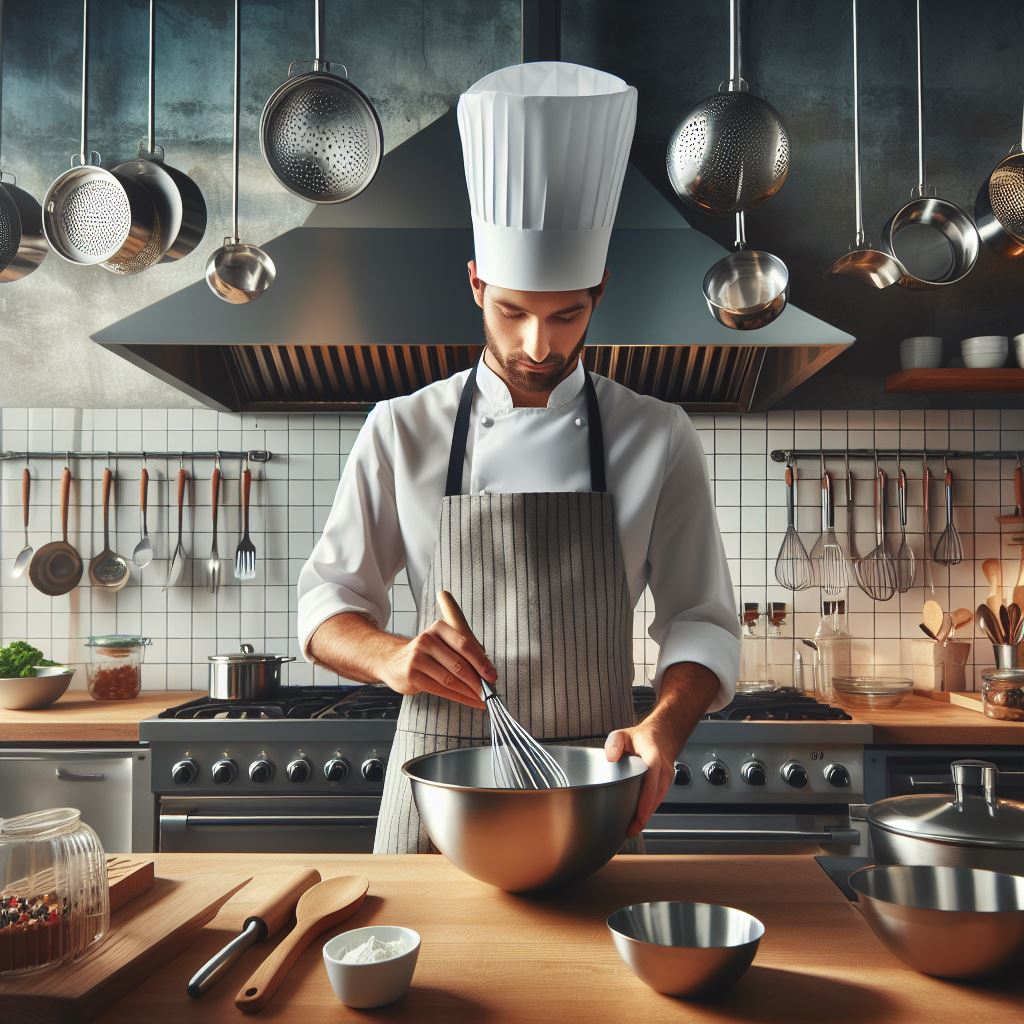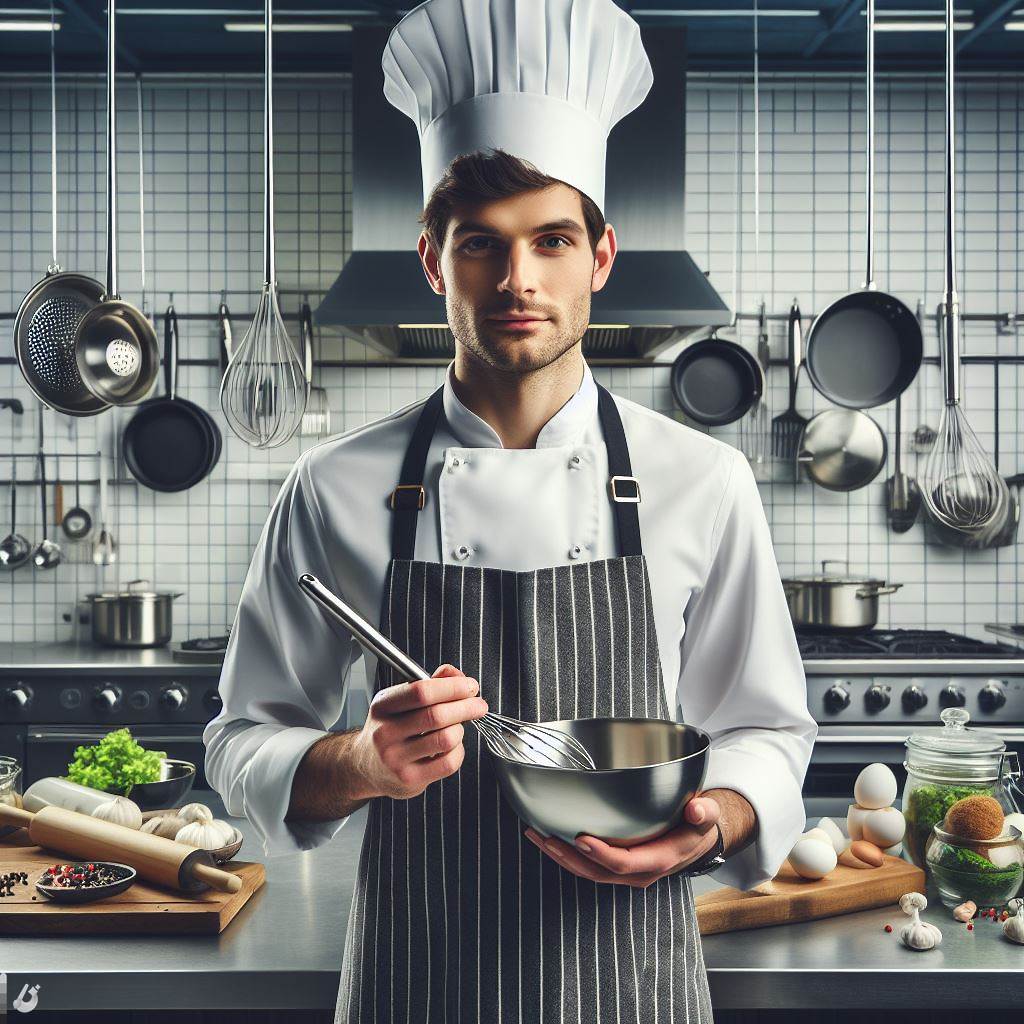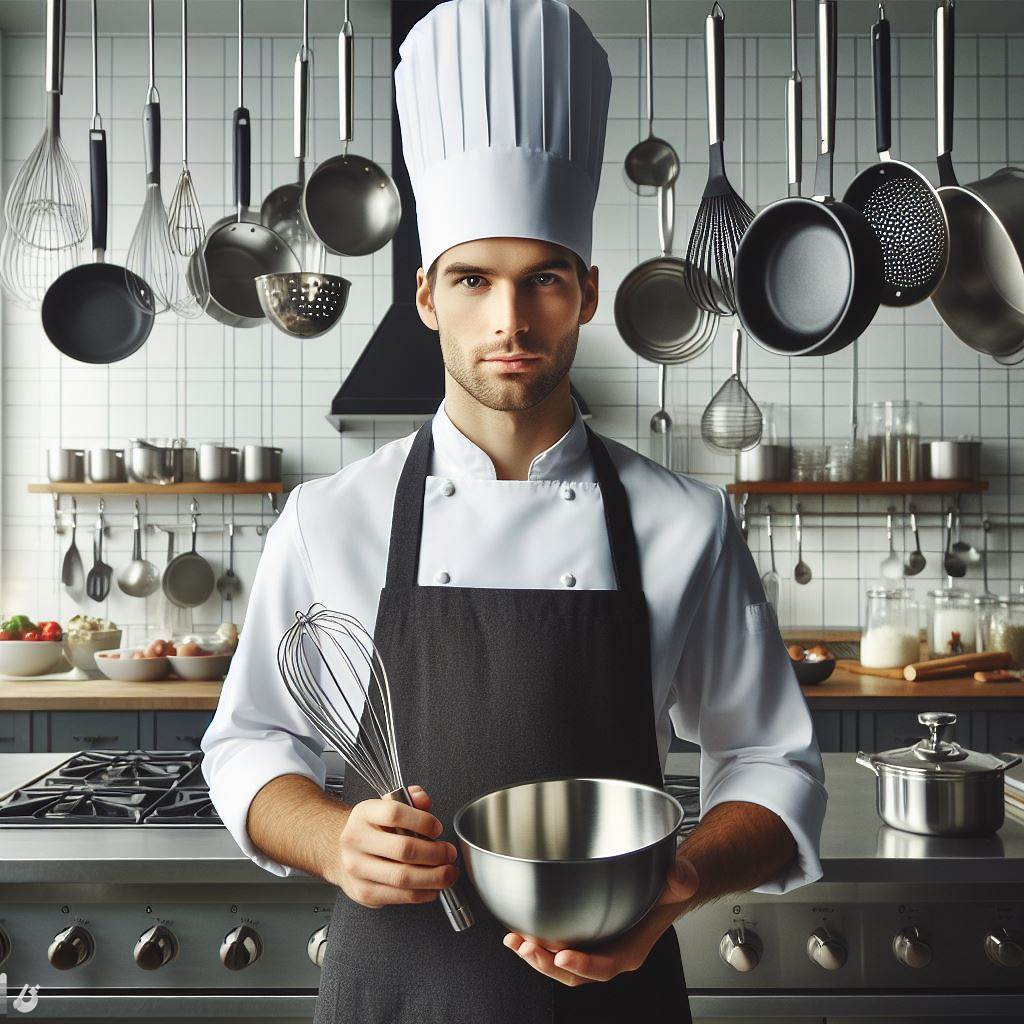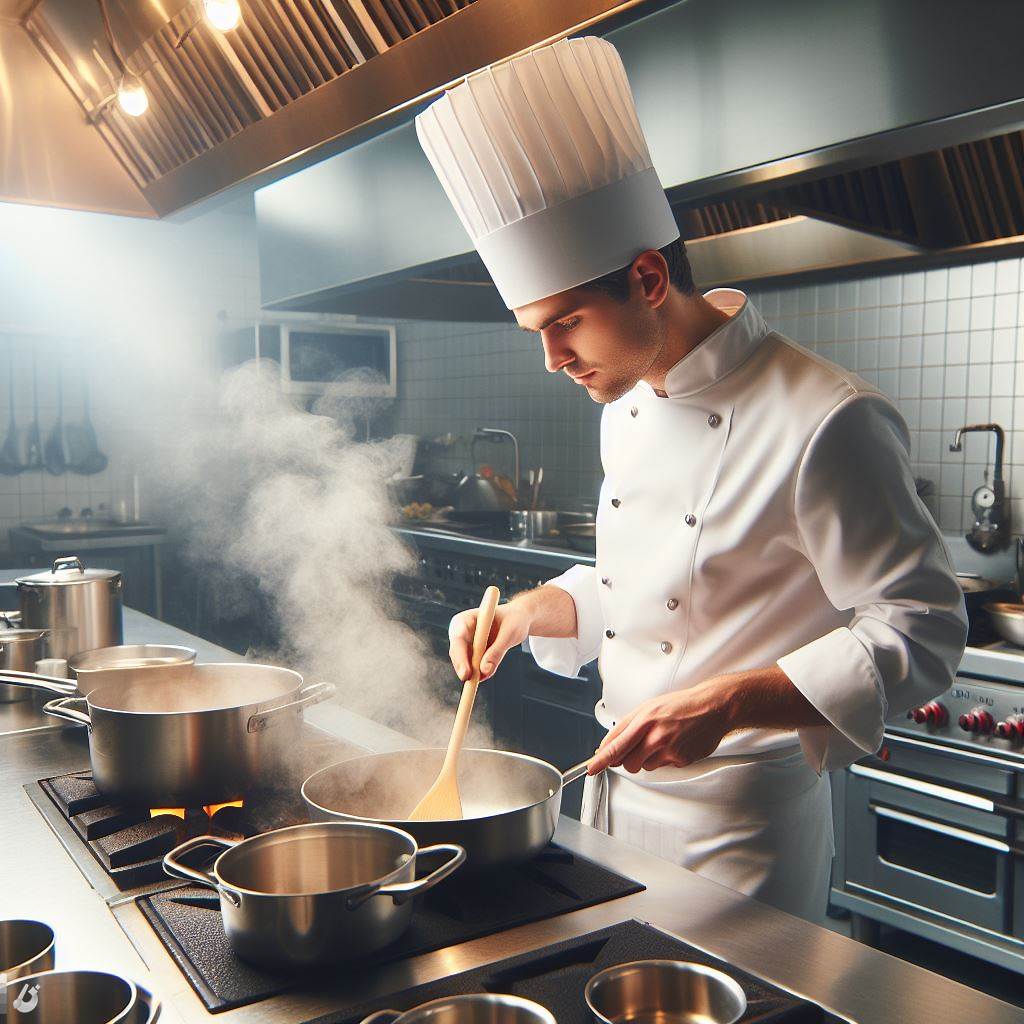Introduction
British cuisine has a rich history, with traditional dishes like fish and chips and roast beef.
However, in recent years, British cuisine has undergone a transformation driven by innovative chefs.
These chefs have taken traditional recipes and techniques and added their own modern and creative twists.
The result is a dynamic and exciting British culinary scene that showcases the diversity and creativity of the country’s chefs.
One major influence on the evolution of British cuisine has been the emphasis on local and seasonal ingredients.
Chefs are now embracing the abundance of high-quality produce available in Britain and incorporating these ingredients into their dishes.
This focus on local sourcing not only supports the local economy but also ensures the freshness and quality of the ingredients.
Chefs have been experimenting with different flavor profiles and techniques from around the world.
They are drawing inspiration from cuisines such as Indian, Chinese, and Middle Eastern, and incorporating these flavors into traditional British dishes.
This fusion of flavors creates exciting and unique combinations that showcase the diversity of British cuisine.
Another important aspect of the evolution of British cuisine is the emphasis on sustainability and ethical practices.
Chefs are conscious of the impact that their choices have on the environment and are working towards using sustainable ingredients and reducing waste.
Overall, the evolution of British cuisine by chefs has brought about a revitalization of traditional dishes and a celebration of the country’s culinary heritage.
With their innovative approaches, these chefs have transformed British cuisine into a dynamic and diverse culinary experience.
Traditional British Cuisine
British cuisine has a rich and varied history that has evolved over centuries.
Personalized UK Career Consulting
Receive tailored career guidance designed just for you. Get actionable steps and expert support to boost your career in 1-3 days. Take control of your career now.
Get StartedTraditional British dishes hold a special place in the hearts of the British people and have become icons of their culinary culture.
In this section, we will take a closer look at the historical background of traditional British dishes, describe popular dishes like roast beef, fish and chips, and shepherd’s pie, and explore the influence of the British Empire on the cuisine.
Historical Background of Traditional British Dishes
- Traditional British dishes have their roots in the history of the British Isles, dating back to ancient times.
- The cuisine has been shaped by various influences, including Roman, Anglo-Saxon, Viking, and Norman invasions.
- Medieval times saw the emergence of dishes like pies and puddings, which are still enjoyed today.
- The Renaissance and Elizabethan eras brought new ingredients, such as sugar and spices, that influenced British cooking.
- The Industrial Revolution brought changes in farming and transportation, leading to enhanced availability of ingredients.
Description of Popular Dishes
- Roast Beef: A classic British dish, typically served with Yorkshire pudding, vegetables, and gravy. It represents a traditional Sunday lunch.
- Fish and Chips: Iconic British “takeaway” dish consisting of deep-fried battered fish served with thick-cut potato chips.
- Shepherd’s Pie: A comfort food made with minced meat (usually lamb) topped with mashed potatoes, baked until golden and crispy.
- Full English Breakfast: A hearty breakfast meal including eggs, bacon, sausage, baked beans, tomatoes, and toast.
- Cornish Pasty: A handheld pastry filled with meat, potato, and vegetables, traditionally enjoyed by miners.
Influence of British Empire on Cuisine
- The British Empire played a significant role in shaping British cuisine by introducing ingredients and cooking techniques from various colonies.
- Indian spices like curry powder and ingredients like chutney became integral parts of British cooking.
- Tea, which was introduced to Britain via its colonies, became a quintessential British beverage.
- The availability of spices, tea, and exotic ingredients from the colonies influenced the overall flavor profile of British dishes.
- The empire also facilitated the import of ingredients like sugar, tea, and cocoa, leading to the development of British desserts.
Traditional British cuisine reflects the historical and cultural influences that shaped it over time.
From humble dishes like roast beef and fish and chips to more elaborate ones like shepherd’s pie, these dishes symbolize the heartiness and comfort associated with British food.
The British Empire’s global influence contributed to the introduction of new ingredients and flavors, making British cuisine diverse and distinct.
Embracing the evolution of British cuisine by chefs ensures its preservation for future generations.
Read: Vegan Chefs Revolutionizing UK Cuisine
Emergence of British Chefs
Rise of professional chefs in the UK since the 19th century
Chefs in the UK began to gain prominence and recognition in the 19th century.
Until then, cooking was mainly done by household staff, and there was no formal culinary training.
However, the Industrial Revolution brought about significant changes in society.
With the rise of the middle class and increased urbanization, there was a growing demand for skilled chefs.
This led to the emergence of culinary schools and cookbooks that provided formal training to aspiring chefs.
Chefs became seen as professionals with specialized knowledge and skills in the culinary arts.
Impact of French cuisine and culinary techniques
The influence of French cuisine on British cooking cannot be overstated.
Your Dream Job Starts with a Perfect CV
Get a tailored CV and cover letter that captures your unique strengths and stands out in your industry. Let us help you make an unforgettable first impression.
Get StartedDuring the reign of King George IV, French chefs were brought to London to cater to his extravagant lifestyle.
The French chefs introduced various culinary techniques, such as sautéing, braising, and flambéing.
They also brought with them a refined sense of taste and presentation.
This influence can still be seen today in dishes like Beef Wellington and Coq au Vin.
The French influence on British cuisine paved the way for the development of a more sophisticated and diverse culinary landscape.
Introduction of new ingredients and cooking methods
British chefs have always been open to experimenting with new ingredients and cooking methods.
The expansion of the British Empire in the 19th and early 20th centuries brought new ingredients from around the world.
Chefs incorporated these new ingredients into their dishes, creating a fusion of flavors and culinary styles.
For example, the introduction of Indian spices and cooking techniques led to the creation of popular dishes like Chicken Tikka Masala.
British chefs have also embraced modern cooking methods, such as sous vide and molecular gastronomy.
These techniques have allowed chefs to push the boundaries of traditional British cuisine and create innovative dishes.
The evolution of British cuisine by chefs has been a dynamic and exciting journey.
From the rise of professional chefs in the 19th century to the impact of French cuisine and the introduction of new ingredients and cooking methods, British cuisine has become diverse, sophisticated, and globally recognized.
Read: Sustainability: A New Focus for UK Chefs
Optimize Your LinkedIn for Success
Boost your LinkedIn profile with a professional bio, keyword-rich headline, and strategic recommendations that attract recruiters. Stand out from the crowd and get noticed.
Optimize NowModern British Cuisine
British cuisine has evolved significantly over the years, driven by the creativity and innovation of talented chefs.
Today, modern British cuisine is characterized by several key elements that have helped to shape its identity.
Emphasis on fresh, seasonal ingredients
One of the defining features of modern British cuisine is its focus on using fresh and seasonal ingredients.
Chefs prioritize locally sourced produce and incorporate it into their dishes to showcase the natural flavors and quality of the ingredients.
This emphasis on freshness adds a vibrant and dynamic aspect to British cuisine.
Fusion of traditional and international flavors
Modern British cuisine embraces a fusion of traditional British flavors with international influences.
Chefs explore and experiment with ingredients and techniques from around the world, resulting in exciting and creative dishes.
This blending of traditional and international flavors gives British cuisine a unique and contemporary twist.
Popularity of the farm-to-table movement
The farm-to-table movement has gained significant traction in modern British cuisine.
Chefs increasingly collaborate with local farmers and producers, ensuring a direct and sustainable supply chain.
This approach not only supports local communities but also guarantees the freshness and quality of the ingredients used in British dishes.
Creation of innovative dishes by British chefs
British chefs have been at the forefront of culinary innovation, constantly pushing boundaries and creating new and exciting dishes.
Their creativity knows no bounds as they experiment with flavors, textures, and presentation.
This relentless pursuit of innovation has placed modern British cuisine on the global culinary map.
Examples of Modern British Cuisine Dishes
Salt-baked beetroot and goat cheese salad
This vibrant and refreshing salad combines the earthiness of salt-baked beetroot with the creaminess of goat cheese.
The dish is then complemented with a tangy dressing, creating a perfect balance of flavors.
Slow-cooked lamb shoulder with minted peas and potatoes
Tender and succulent lamb shoulder is slow-cooked to perfection, resulting in melt-in-your-mouth meat.
It is served with buttery minted peas and creamy mashed potatoes, creating a classic British dish with a modern twist.
Pan-seared sea bass with chorizo and tomato salsa
This dish showcases the fusion of Mediterranean and British flavors.
The delicate sea bass is pan-seared, creating a crispy skin, while the spicy chorizo and tomato salsa add a burst of flavor and texture.
Peanut butter and chocolate tart with salted caramel ice cream
A modern British dessert that combines the richness of peanut butter and chocolate in a decadent tart.
The sweet and salty flavors are enhanced by the addition of homemade salted caramel ice cream, creating a heavenly dessert experience.
In essence, modern British cuisine has seen a remarkable transformation over the years, driven by the emphasis on fresh and seasonal ingredients, fusion of traditional and international flavors, the popularity of the farm-to-table movement, and the innovative creations of British chefs.
These elements have collectively contributed to the evolution and success of British cuisine in the contemporary culinary landscape.
Read: Famous UK Chefs: Stories of Culinary Success
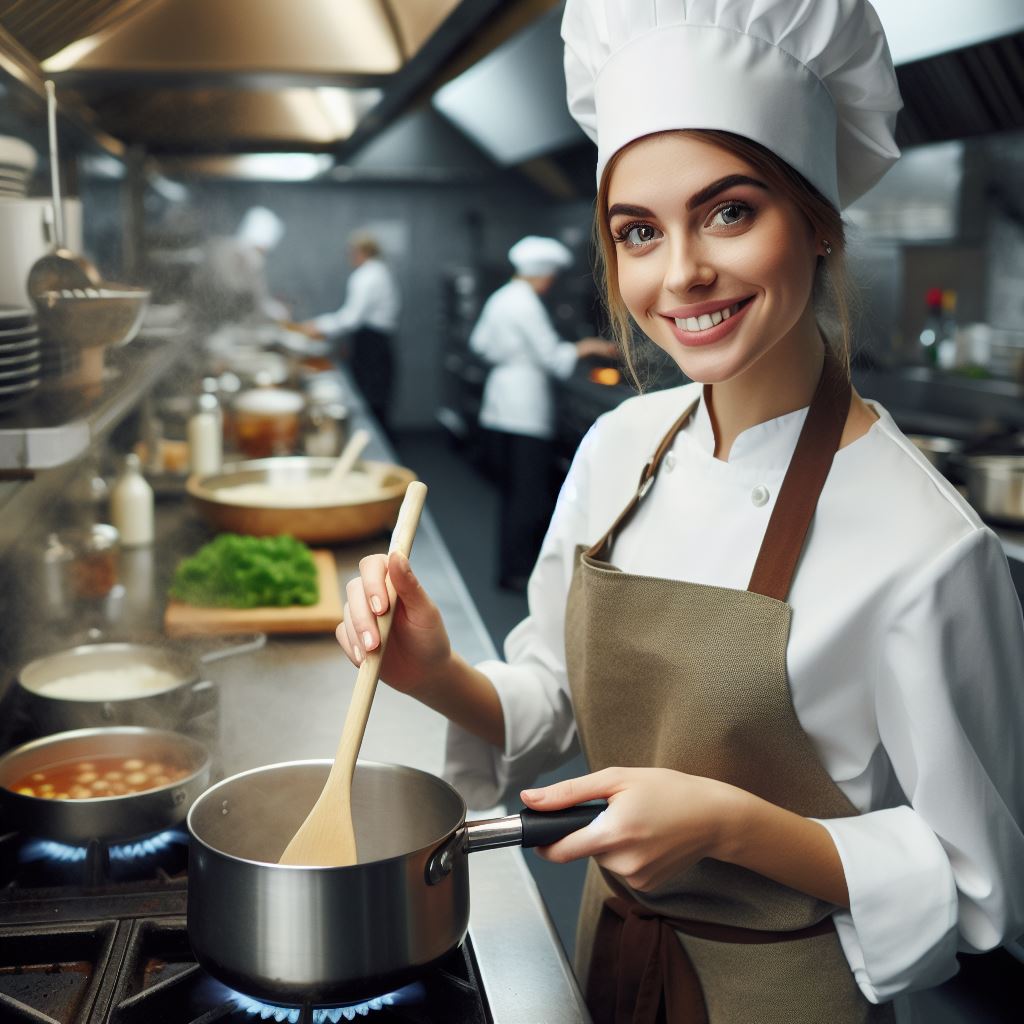
Celebrity Chefs and Celebrity Culture
In recent years, the influence of celebrity chefs on British cuisine has been undeniable.
Figures like Jamie Oliver, Gordon Ramsay, and Nigella Lawson have not only revolutionized the way we cook and eat but have also shaped our perception of cooking and food.
The Rise of Celebrity Chefs
- Jamie Oliver, known for his passion for fresh ingredients and healthy cooking, has played a significant role in transforming the British food landscape.
- Gordon Ramsay, with his fiery personality and Michelin-starred restaurants, has not only inspired aspiring chefs but has also elevated the standard of British cuisine.
- Nigella Lawson’s sensual approach to cooking has made home cooking alluring, encouraging people to experiment with flavors and techniques.
Cooking Shows and their Impact
The introduction of cooking shows on television has had a profound impact on British cuisine.
These shows have not only entertained us but have also taught us valuable cooking techniques and inspired us to explore different flavors and cuisines.
- Shows like “MasterChef” and “The Great British Bake Off” have nurtured a generation of home cooks and baking enthusiasts, introducing new recipes and flavors into British households.
- Chef competitions on television have created a culture of culinary excellence, pushing chefs to innovate and raise the bar of what is considered good food.
- Cooking shows have also made cooking more accessible, breaking down the intimidation factor and encouraging people to get creative in the kitchen.
The Influence of Celebrity Culture
Celebrity culture has played a significant role in shaping our perception of cooking and food.
It has brought the world of food into the limelight, making it glamorous and aspirational.
- Celebrity chefs have become household names, and their cookbooks and television shows have become bestsellers, influencing our food choices and cooking styles.
- The rise of food blogs, food influencers, and social media platforms dedicated to sharing food content have further popularized the idea of food as a form of self-expression and art.
- Celebrity endorsements and collaborations with food brands have also influenced our purchasing decisions, creating trends and driving demand for certain ingredients and products.
In general, the evolution of British cuisine by chefs has been greatly influenced by celebrity chefs and the wider celebrity culture.
Their passion, creativity, and media presence have not only transformed the way we cook and eat but have also shaped our perception of cooking and food.
Cooking shows and the rise of social media have made cooking more accessible and inspired a new generation of food enthusiasts.
The impact of celebrity culture on British cuisine is undeniable, and it continues to shape the way we approach cooking and food.
Read: Navigating the UK Chef Job Market in 2024
The Michelin Star Revolution
The rise of Michelin-starred restaurants in the UK
- The UK’s culinary landscape has undergone a significant transformation in recent decades.
- One of the key catalysts for this evolution has been the rise of Michelin-starred restaurants.
- Originally introduced in France by the Michelin tire company in the early 20th century, the Michelin Guide quickly gained prestige and influence in the culinary world.
- The guide’s star rating system, ranging from one to three stars, became the benchmark for fine dining establishments.
- In the UK, the Michelin Guide was first published in 1974, and since then, British chefs have actively pursued Michelin recognition.
- The quest for Michelin stars has driven many chefs to push boundaries and experiment with new flavors and techniques.
- British fine dining establishments have become laboratories for culinary innovation, showcasing the country’s rich gastronomic heritage.
- The evolution of British cuisine can be attributed in part to the gastronomic experiments undertaken by these visionary chefs.
- Cutting-edge techniques such as molecular gastronomy, sous vide, and foraging have found their way into the kitchens of Michelin-starred restaurants.
- Chefs like Heston Blumenthal, known for his inventive approach to cooking, have played a pivotal role in shaping modern British cuisine.
- Blumenthal’s restaurant, The Fat Duck, became the first three-Michelin-starred restaurant in the UK in 2004, putting British cuisine on the global culinary map.
Recognition of British cuisine on the global culinary stage
- The increasing number of Michelin-starred restaurants in the UK has not only elevated British cuisine domestically but also on the global culinary stage.
- British chefs are now at the forefront of the international culinary scene, showcasing the diversity and creativity of their dishes.
- The recognition of British cuisine by the Michelin Guide has helped dispel the stereotype of bland and uninspiring British food.
- Instead, it has highlighted the use of locally sourced and seasonal ingredients, as well as the innovation and quality of the dishes.
- The globalization of cuisine has also played a role in the newfound recognition of British food.
- People are now more adventurous and willing to explore different flavors and culinary traditions, making British cuisine more appealing.
- The popularity of British TV shows and celebrity chefs has further boosted the perception of British food.
- The success of shows like “MasterChef” and “The Great British Bake Off” has created a greater interest in British cuisine.
- As a result, tourists and food enthusiasts from around the world are flocking to UK restaurants to sample the country’s diverse culinary offerings.
- The Michelin Guide has become a trusted resource for travelers seeking top-notch dining experiences.
- Having Michelin-starred restaurants in the UK provides a sense of validation and attracts food tourists, boosting the economy.
In a nutshell, the rise of Michelin-starred restaurants has been instrumental in the evolution and recognition of British cuisine.
By pushing boundaries and experimenting with flavors and techniques, British chefs have transformed the culinary landscape.
The recognition by the Michelin Guide has dispelled stereotypes and put British cuisine on the global culinary stage.
With a flourishing culinary scene and a growing number of Michelin-starred establishments, British cuisine continues to captivate and delight food enthusiasts from around the world.
Conclusion
The evolution of British cuisine by chefs highlights a remarkable journey over the years.
From traditional dishes to experimentation, British chefs have played a significant role in shaping the culinary scene.
This transformation has brought about an array of flavors, techniques, and ingredients, adding depth and diversity to British cuisine.
It is important to acknowledge the ongoing changes and contributions made by chefs to British gastronomy.
Through their innovation and creativity, they have introduced new cooking styles, embraced global influences, and elevated the perception of British food.
This has resulted in a revitalized culinary landscape that continues to attract international recognition and acclaim.
Looking towards the future, the prospects for British cuisine are promising.
With its rich history and newfound openness toward experimentation, chefs are constantly pushing boundaries and redefining what it means to be British in terms of food.
The focus on local sourcing, sustainability, and seasonality will likely continue to play a pivotal role in shaping the future of British cuisine.
As British chefs continue to push boundaries and embrace new concepts, the culinary scene will undoubtedly evolve further.
The global influence will continue to be incorporated, showcasing the diversity and adaptability of British cuisine.
The future of British gastronomy holds exciting possibilities, and it is an exciting time to be a part of this ever-changing journey.
[E-Book for Sale]
500 Cutting-Edge Tech Startup Ideas for 2024 & 2025: Innovate, Create, Dominate
$19.99 • 500 Tech Startup Ideas • 62 pages
You will get inspired with 500 innovative tech startup ideas for 2024 and 2025, complete with concise descriptions to help you kickstart your entrepreneurial journey in AI, Blockchain, IoT, Fintech, and AR/VR.

